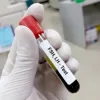Exploring Fertility Treatment Options for Same-Sex Couples

In a world where love knows no bounds and families come in all shapes and sizes, now, even same-sex couples can celebrate the joy of parenthood with a plethora of modern-day fertility treatments. Such advancements, combined with a shift in traditional thinking, have opened up doors of possibilities through fertility treatments that allow couples to complete their families and embark on the journey of raising children together. So let us have a look at the options that same-sex couples can explore to complete their family!
Natural IVF Cycle: A Minimal Invasive Approach to Conception
Natural IVF Cycle is an innovative and less intrusive option to the conventional approach of IVF treatments, making it an overall appealing choice for same-sex couples. This conception strategy intently mimics the mother-to-be’s body’s regular menstrual cycle, gathering a single egg during each cycle instead of stimulating the ovaries to create numerous eggs in one go. The Natural IVF Cycle, while being innovative, still uses a limited number of medications, which significantly reduces the chances of encountering side effects and, hence, makes it a more comfortable medical procedure for the patient.
For same-sex female couples, Natural IVF can be a no-fuss effective method for conceiving. Either of the partners provides an egg, which is then fertilised with the sperm from a donor. The embryo is then implanted in either of the partners’ uterus for the pregnancy to proceed as usual. As for male partners, they, too, can benefit from natural IVF through a surrogate arrangement.
Intra-Cytoplasmic Sperm Injection (ICSI): A Precise Approach to Fertilisation
With its precise control over the fertilisation process, Intra-Cytoplasmic Sperm Infusion (ICSI) is a huge headway in assisted reproduction methods. This technique involves directly infusing a single sperm into an egg, which significantly improves the probability of successful fertilisation. ICSI becomes a practical choice for same-sex couples where sperm quality and amount are especially a concern.
Also, when ICSI is combined with Preimplantation Genetic Diagnosis, it can significantly increase the chances of a successful pregnancy as it provides couples with the choice of selecting the healthiest sperm or egg. By doing so, anxious parents-to-be can ease their minds by screening sperm or egg for sperm motility, egg quality, and their related potential hereditary issues and other concerns.
Egg and Sperm Donation: Expanding the Possibilities to Achieve Parenthood
Be it heterosexual couples or same-sex couples, a fruitful pregnancy journey starts with healthy sperm and egg. Be that as it may, with regard to same-sex couples, sperm and egg donation turns out to be extremely important. These donations help with opening up pathways for couples toward biological parenthood wherein their children carry the genetic make-up of either of the parents.
For female couples, donor sperm is used to fertilise either of the partners’ eggs. This approach can be taken through either Natural IVF or ICSI, depending on the couple’s preference and the fertility specialist’s medical advice. On the other hand, male couples rely on egg donation combined with surrogacy to achieve parenthood.
Surrogacy: A Vital Component of Successful Pregnancy for Same-Sex Couples
Surrogacy is a key approach for same-sex couples, especially male couples who are seeking to have biological children. When it comes to surrogacy, there are two options: traditional surrogacy and gestational surrogacy. In traditional surrogacy, the surrogate is also the egg donor, making her the biological mother of the child. While it saves aspiring parents the hassle of sourcing an egg, however, this method is less common as it involves potential legal and emotional layers.
As for gestational surrogacy, it allows parents to be in control of the genetic makeup of both the sperm and the egg. This technique further eliminates the intricacies related to traditional surrogacy, as the surrogate has no biological connection with the child she is carrying. The eggs used in gestational surrogacy come from a donor or one of the intended fathers’ female relatives, if they are willing. This kind of surrogacy guarantees that the kid is hereditarily connected with either of the parents without the surrogate having a biological connection and even a legal connection, at times.
However, before opting for surrogacy, one should keep in mind that it is a deeply personal and impactful decision. Couples are often required to work with surrogacy agencies to find a surrogate who aligns with their values, health standards, and legal requirements. Throughout the pregnancy, the parents-to-be generally maintain close contact with the surrogate, supporting her and ensuring the health and well-being of their future child.
Conclusion: Embracing a Bright Future of Family
For same-sex couples who are looking forward to celebrating their love— trust us, the journey to parenthood is full of hope and endless possibilities. Owing to the medical advancements in the field of fertility treatments along with a growing acceptance of diverse family structures in society, now, same-sex couples can complete their families and share their love with the next generation. As we look to the future, let’s help build a future where the desires of same-sex couples who wish to have children and create a loving family can be accomplished with the continued progress in reproductive medicine alongside a sense of acceptance that promises an even brighter and more inclusive landscape for all families.




